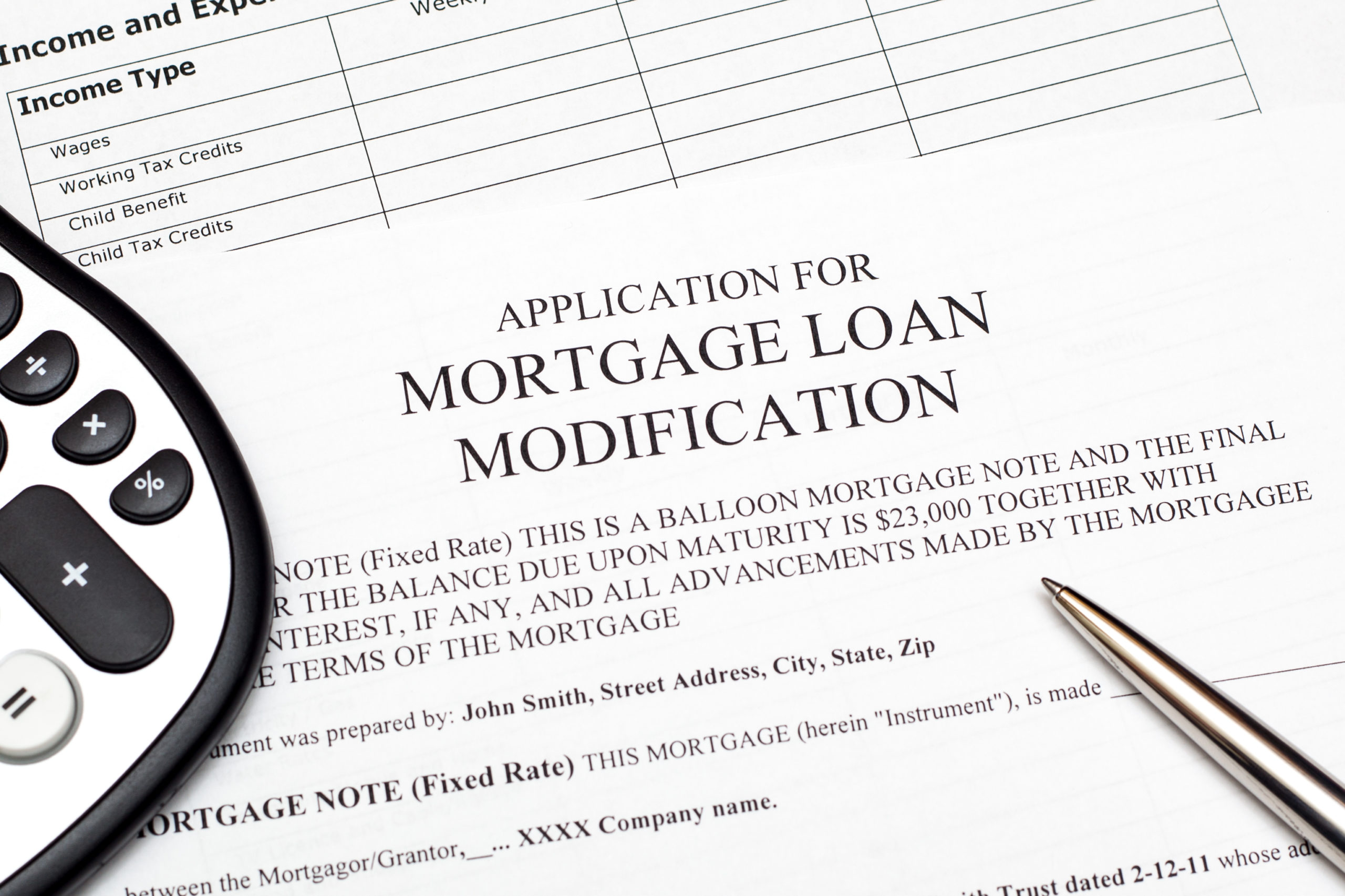If you’re facing foreclosure, you may feel hopeless, but the reality is that there’s a lot you can do to stay in your home. One of the most effective ways to stop foreclosure is with a loan modification. Here’s what you need to know.
What Is a Loan Modification?
A loan modification (also known as a mortgage modification) allows you to renegotiate the terms of your loan with your lender. The goal is to come to an agreement that makes your monthly mortgage payments more affordable so you can keep your home and your lender doesn’t have to go through the process of foreclosure.
How Can a Mortgage Be Modified?
There are several ways in which loans can be modified, but your lender may not disclose all of them to you, which is why it’s a good idea to hire a skilled real estate attorney to assist you in the process. Our team at Kelly Legal Group can also advise you on other ways to stop foreclosure if your lender isn’t amenable to making the changes you need to your mortgage.
Loans can be modified by:
- Reducing the interest rate
- Reducing the principal owed
- Eliminating or reducing late fees and penalties
- Reducing the monthly payment amount
- Forbearance, or a temporary pause on payments
What Is a Chapter 13 Loan Modification?
Loan modification after bankruptcy can be complicated; this is another area where an attorney can help. When you file for Chapter 13 bankruptcy, you will be paying arrears on your mortgage through a payment plan, but even after filing for bankruptcy, you can work directly with your lender on a loan modification. Once you’ve worked out an agreement with your lender, you’ll have to bring that agreement to your bankruptcy judge for approval and a new Chapter 13 payment plan.
Once a House Is in Foreclosure, Can It Be Stopped?
If you’re looking for ways to stop foreclosure immediately, it’s important to act fast. The Consumer Financial Protection Bureau stipulates that lenders put a pause on the foreclosure process while your loan modification application is pending, but it doesn’t always happen the way it should, particularly when you’re dealing with your lender on your own and don’t have an attorney involved in the process.
One of the best ways to protect your home is to file a Chapter 13 bankruptcy to immediately stop the foreclosure process, then apply for a loan modification. Lenders don’t make the loan modification process easy, so filing for Chapter 13 will give you the peace of mind knowing that your home is safe and cannot be foreclosed on; you can work out the details of the loan modification later.
Do I Quality for a Loan Modification?
Lenders want to collect the money they are owed, so they set the bar high when it comes to loan modifications. That said, they’d also rather get paid something than nothing at all, so with an experienced real estate attorney by your side, you can usually negotiate a loan modification if you’ve suffered a job loss, disability, or other life circumstances that impact your ability to make your monthly mortgage payments on their original terms.
Learn More About Loan Modification
If you’d like to learn more about how we can help you avoid foreclosure through loan modification, request an appointment online, or give us a call at 512-505-0053.

